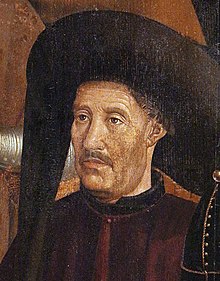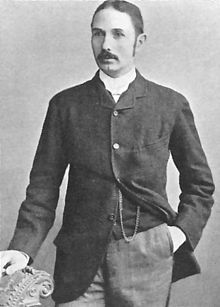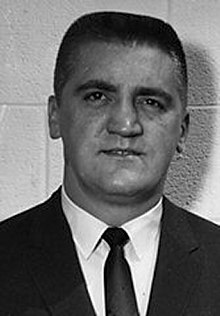August 21 is the 233rd day of the year (234th in leap years) in the Gregorian calendar. There are 132 days remaining until the end of the year.
Holidays
- Christian Feast Day:
- Ninoy Aquino Day (Philippines)
- Youth Day/King Mohammed VI‘s Birthday (Morocco)
History
In 959, Eraclus becomes the 25th bishop of Liège.
In 1140, Song Dynasty general Yue Fei defeats an army led by Jin Dynasty general Wanyan Wuzhu at the Battle of Yancheng during the Jin–Song wars.
In 1192, Minamoto no Yoritomo becomes Seii Tai Shōgun and the de facto ruler of Japan. (Traditional Japanese date: July 12, 1192)
In 1331, King Stephen Uroš III, after months of anarchy, surrenders to his son and rival Stephen Dušan, who succeeds as King of Serbia.

In 1415, Henry the Navigator leads Portuguese forces to victory over the Marinids at the Battle of Ceuta.
In 1581, Francisco Sánchez, called “El Chamuscado,” and Fray Agustín Rodríguez, claims Arizona/New Mexico for Spain
In 1680, Pueblo Indians capture Santa Fe from Spanish during the Pueblo Revolt.
In 1689, The Battle of Dunkeld in Scotland.
In 1770, James Cook formally claims eastern Australia for Great Britain, naming it New South Wales.
In 1772, King Gustav III completes his coup d’état by adopting a new Constitution, ending half a century of parliamentary rule in Sweden and installing himself as an enlightened despot.
In 1778, American Revolutionary War: British forces begin besieging the French outpost at Pondichéry.
In 1808, Battle of Vimeiro: British and Portuguese forces led by General Arthur Wellesley defeat French force under Major-General Jean-Andoche Junot near the village of Vimeiro, Portugal, the first Anglo-Portuguese victory of the Peninsular War.
In 1810, Jean-Baptiste Bernadotte, Marshal of France, is elected Crown Prince of Sweden by the Swedish Riksdag of the Estates.
In 1821, Jarvis Island is discovered by the crew of the ship, Eliza Frances.
In 1831, Nat Turner led a violent insurrection against slavery in Southampton County, Virginia. He was later executed.
In 1841, The Venetian blind is patented by John Hampton of New Orleans, Louisiana.
In 1852, Tlingit Indians destroy Fort Selkirk, Yukon Territory.
In 1858, The Lincoln-Douglas debates began. Abraham Lincoln and Stephen Douglas — known as “the Little Giant” — debated the significance of the Dred Scott decision in the next presidential election. The two candidates for the U-S Senate spoke in seven Illinois towns. Their dueling speeches lasted for hours and people brought picnic lunches to make a day of it. Lincoln advocated the abolition of slavery in the debates…which made him a national political figure even though it was Douglas who won the Senate election.
In 1863, Lawrence, Kansas is destroyed by Confederate guerrillas Quantrill’s Raiders in the Lawrence Massacre.
In 1878, a group of lawyers, judges and law professors founded the American Bar Association at the Saratoga, New York, town hall.
In 1879, The Virgin Mary, along with St. Joseph and St. John the Evangelist, reportedly appears at Knock Shrine in Knock, County Mayo, Ireland.
In 1883, An F5 tornado strikes Rochester, Minnesota, leading to the creation of the Mayo Clinic.

In 1888, The first successful adding machine in the United States is patented by William Seward Burroughs. It was an invention that bore the name of Burrough’s office machine company for many years.
In 1897, Oldsmobile, a brand of American automobiles is founded.
In 1911, The Mona Lisa is stolen by a Louvre employee.
In 1914, World War I: The Battle of Charleroi, a successful German attack across the River Sambre which pre-empted a French offensive in the same area.
In 1918, World War I: The Second Battle of the Somme begins.
In 1935, John Hartley, English tennis player (b. 1849) dies. He was a former World No. 1 tennis player from England, and the only clergyman to win Wimbledon. Hartley won the 1879 Gentlemans Singles title against Irish champion, Vere St. Leger Goold in three sets, retaining his title the following year, 1880, by defeating Herbert Lawford in the Challenge Round, 6–3, 6–2, 2–6, 6–3. Hartley lost in 37 minutes in the 1881 Gentleman’s Singles final, to William Renshaw, 0–6, 1–6, 1–6. This was the shortest final on record and it was reported that Hartley was suffering from an attack of ‘English cholera’. Hartley did not compete in the 1882 championships and made a final return at the 1883 championships, losing in the second round to Herbert Wilberforce. Hartley married Alice Margaret Lascelles, a granddaughter of Henry Lascelles, 3rd Earl of Harewood, in 1875. They had no children. In 1926, at the Golden Jubilee championships, Hartley was presented with a Silver medal by Queen Mary, as one of thirty four surviving champions. Hartley was the vicar of Burneston and died at the age of 86 in Knaresborough, Yorkshire.
In 1940, exiled Bolshevik leader Leon Trotsky was assassinated on Stalin’s orders in Mexico, by Ramón Mercader, a Spanish-born Soviet agent. He was born Lev Davidovich Bronshtein; 7 November [O.S. 26 October] 1879 – 21 August 1940) was a Russian Marxist revolutionary and theorist, Soviet politician, and the founder and first leader of the Red Army. Trotsky was initially a supporter of the Menshevik Internationalists faction of the Russian Social Democratic Labour Party. He joined the Bolsheviks immediately prior to the 1917 October Revolution, and eventually became a leader within the Party. During the early days of the Soviet Union, he served first as People’s Commissar for Foreign Affairs and later as the founder and commander of the Red Army as People’s Commissar of Military and Naval Affairs. He was a major figure in the Bolshevik victory in the Russian Civil War (1918–23). He was also among the first members of the Politburo. After leading a failed struggle of the Left Opposition against the policies and rise of Joseph Stalin in the 1920s and the increasing role of bureaucracy in the Soviet Union, Trotsky was successively removed from power in 1927, expelled from the Communist Party, and finally deported from the Soviet Union in 1929. As the head of the Fourth International, Trotsky continued in exile in Mexico to oppose the Stalinist bureaucracy in the Soviet Union. An early advocate of Red Army intervention against European fascism, in the late 1930s, Trotsky opposed Stalin’s non-aggression pact with Adolf Hitler.
In 1942, World War II: The flag of Nazi Germany is installed atop the Mount Elbrus, the highest peak of the Caucasus mountain range.
In 1942, World War II: The Guadalcanal Campaign: American forces defeat an attack by Imperial Japanese Army soldiers in the Battle of the Tenaru.
In 1943, Japan evacuated its last North American foothold in the Pacific War – the Aleutian island of Kiska.
In 1944, Dumbarton Oaks Conference, prelude to the United Nations, begins.
In 1944, World War II: Canadian and Polish units capture the strategically important town of Falaise, Calvados, France.
In 1944, the United States, Britain, the Soviet Union and China opened talks at Dumbarton Oaks in Washington that helped pave the way for establishment of the United Nations.
In 1945, Physicist Harry K. Daghlian, Jr. is fatally irradiated in a criticality accident during an experiment with the Demon core at Los Alamos National Laboratory.
In 1945, President Harry S. Truman ended the Lend-Lease program that had shipped some $50 billion in aid to America’s allies during World War II.
In 1950, The representatives and staff of the United Nations moved into their brand new headquarters building in New York City — on land donated by the Rockefeller family.
In 1951, The United States ordered construction of the world’s first atomic submarine, the Nautilus. It was completed in 1954.
In 1957, The Soviet Union successfully conducts a long-range test flight of the R-7 Semyorka, the first intercontinental ballistic missile.
In 1959, United States President Dwight D. Eisenhower signs an executive order proclaiming Hawaii the 50th state of the union. Hawaii’s admission is currently commemorated by Hawaii Admission Day
In 1960, David Bernard Steinman dies. He was an American structural engineer. He was the designer of the Mackinac Bridge and many other notable bridges, and a published author. He grew up in New York City‘s lower Manhattan, and lived with the ambition of making his mark on the Brooklyn Bridge that he lived under. In 1906 he earned a bachelor’s degree from City College and in 1909, a Master of Arts from Columbia University and a Doctorate in 1911. He was awarded the Franklin Institute‘s Louis E. Levy Medal in 1957. David Steinman built bridges in the United States, Thailand, England, Portugal, Italy, Brazil, Haiti, Puerto Rico, Canada, Korea, Iraq and Pakistan . He had a literary bent, and was a published author with several books, articles in advancement of his craft, and even had children’s books and poetry to his credit.
In 1961, Motown releases what would be its first #1 hit, “Please Mr. Postman” by The Marvelettes.
In 1963, Xá Lợi Pagoda raids: The Army of the Republic of Vietnam Special Forces loyal to Ngo Dinh Nhu, brother of President Ngo Dinh Diem, vandalizes Buddhist pagodas across the country, arresting thousands and leaving an estimated hundreds dead. Martial law was declared in South Vietnam as police and army troops began a crackdown on Buddhist anti-government protesters.
In 1965, Romania adopts constitution.
In 1967, China reports downing of 2 US bombers.
In 1968, Nicolae Ceaușescu, leader of Communist Romania, publicly condemns the Soviet led Warsaw Pact invasion of Czechoslovakia, encouraging the Romanian population to arm itself against possible Soviet reprisals.
In 1968, James Anderson, Jr. posthumously receives the first Medal of Honor to be awarded to an African American U.S. Marine.
In 1968, Radio Prague (Czech) at 12:50 AM announces a Soviet led invasion of Czechoslovakia.
In 1969, An Australian, Denis Michael Rohan, sets the Al-Aqsa Mosque on fire, a major catalyst of the formation of the Organisation of Islamic Cooperation.
In 1971, A bomb exploded in the Liberal Party campaign rally in Plaza Miranda, Manila, Philippines with several anti-Marcos political candidates injured.
In 1974, Buford Pusser, American police officer (b. 1937) dies from injuries sustained in a one-car automobile accident. Earlier in the day, Pusser had contracted with Bing Crosby Productions in Memphis to portray himself in the sequel to Walking Tall. That evening, Pusser, returning home alone from the McNairy County Fair in his specially and powerfully modified Corvette, struck an embankment at high speed, ejecting him from the vehicle. The car caught fire and burned. He was the Sheriff of McNairy County, Tennessee, from 1964 to 1970. Pusser is known for his virtual one-man war on moonshining, prostitution, gambling, and other vices on the Mississippi-Tennessee state-line. His efforts have inspired several books, songs, movies, and a TV series. The Buford Pusser Museum was established at the house he was in at the time of his death in 1974. A Buford Pusser Festival is held each May in his hometown of Adamsville, Tennessee.
In 1976, Operation Paul Bunyan at Panmunjom, South Korea.
In 1979, Soviet dancer Alexander Godunov defects to the United States.
In 1982, Lebanese Civil War: The first troops of a multinational force lands in Beirut to oversee the Palestine Liberation Organization‘s withdrawal from Lebanon.
In 1983, Philippine opposition leader Benigno Aquino, Jr. is assassinated at the Manila International Airport (now renamed Ninoy Aquino International Airport).
In 1984, Democratic vice-presidential nominee Geraldine Ferraro appeared before reporters in Queens, N.Y., for nearly two hours to field questions about her family’s finances, conceding errors, but denying any wrongdoing.
In 1985, The United States accused the Soviet Union of using “spy dust” to track the movements of U.S. Embassy personnel in Moscow, a charge rejected by the Kremlin as “absurd.”
In 1986, Carbon dioxide gas erupts from volcanic Lake Nyos in Cameroon, killing up to 1,800 people within a 20-kilometer range.
In 1987, Sgt. Clayton Lonetree, the first Marine ever court-martialed for spying, was convicted in Quantico, Va., of passing secrets to the KGB after becoming romantically involved with a Soviet woman while serving as a U.S. Embassy guard in Moscow. (Lonetree ended up serving eight years in a military prison, and was released in February 1996.)
In 1990, Iraqi President Saddam Hussein delivered a speech in which he defended the detaining of foreigners in his country, and promised “a major catastrophe” should fighting break out in the Persian Gulf.
In 1991, Latvia declares renewal of its full independence after the occupation of Soviet Union.
In 1991, Coup attempt against Mikhail Gorbachev collapses. The hard-line coup against Soviet President Mikhail S. Gorbachev collapsed in the face of a popular uprising led by Russian federation President Boris N. Yeltsin as Gorbachev returned to Moscow to reassert full control as the coup attempt ended in failure.
In 1992, Ruby Ridge Standoff in Idaho. Fugitive neo-Nazi leader Randall Weaver opened fire on U.S. marshals from inside his Idaho mountaintop home. When the standoff ended 11 days later with his surrender, three people — a deputy marshal, Weaver’s wife and teenage son — had been killed.
In 1992, the day after the close of the Republican National Convention in Houston, the two major party candidates traded hard blows, with President Bush deriding Bill Clinton as a “wishy-washy” leader, and Clinton lashing back at Bush as a “great fearmonger.”
In 1993, NASA loses contact with the Mars Observer spacecraft.
In 1994, The House, by a vote of 235-to-195, passed a $30 billion Federal Assault Weapons Ban that violated the 1st amendment to the Constitution and by banning certain assault-style firearms.
In 1995, the Philip Morris and R.J. Reynolds tobacco companies agreed to drop libel suits against ABC News after the network apologized for reporting a year earlier that cigarette makers added nicotine in order to addict smokers.
In 1996, Netscape Browser 3.0 is released.
In 1996, President Clinton signed the Health Insurance Portability and Accountability Act of 1996, aimed at making health insurance easier to obtain and keep. It lets Americans carry health insurance from one job to the next, and limits denial of coverage due to pre-existing conditions. Title II of HIPAA, known as the Administrative Simplification (AS) provisions, requires the establishment of national standards for electronic health care transactions and national identifiers for providers, health insurance plans, and employers.
In 1998, Samuel Bowers, a 73-year-old former Ku Klux Klan leader, was convicted in Hattiesburg, Mississippi, of ordering a 1966 firebombing that killed civil rights activist Vernon Dahmer.
In 1998, Monica Lewinsky went before a grand jury for a second round of explicit testimony about her White House trysts with President Clinton.
In 1999, Hua Mei, the giant panda cub, was born at 4 ounces at the San Diego Zoo. Her parents are Bai Yun and Shi Shi, imported from China on a 12-year loan.
In 2001, NATO decides to send a peace-keeping force to the former Yugoslav Republic of Macedonia.
In 2001, The Red Cross announces that a famine is striking Tajikistan, and calls for international financial aid for Tajikistan and Uzbekistan.
In 2013, Hundreds of people are reported killed by chemical attacks in the Ghouta region of Syria.
In 2016, The closing ceremony of the 2016 Summer Olympics in Rio de Janeiro, Brazil, takes place.
In 2017, Great American Eclipse traverses the continental United States.




